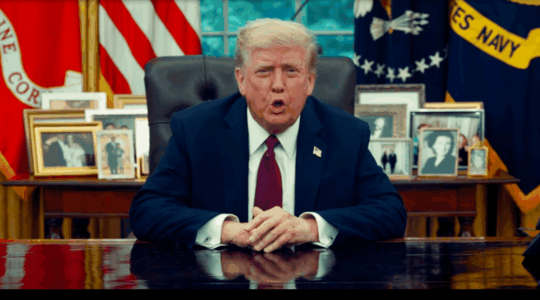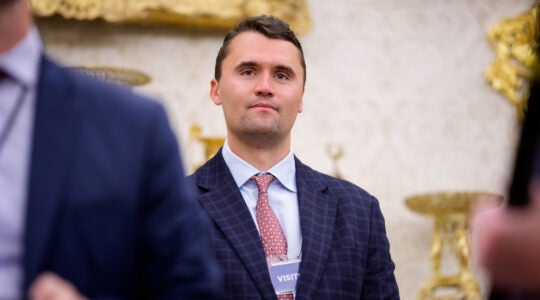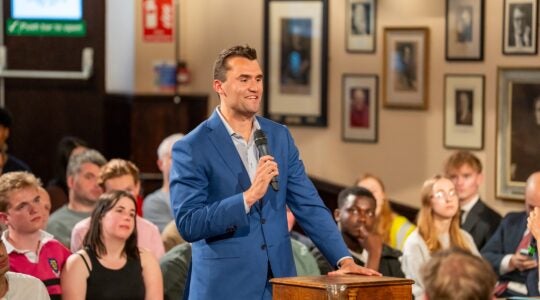WASHINGTON (JTA) – Florida’s substantial Jewish community cried disenfranchisement in 2000 after GOP state officials counted out thousands of ballots in the 2000 elections. Now it’s an internal Democratic squabble that could silence its voice at the national table.
The Democratic National Committee and the Florida state party have yet to come to terms over the state party’s insistence on holding the primary on Jan. 29 instead of in March, as in previous presidential election years.
Major states like Florida and Michigan have advanced the dates of their primaries to have a greater say in candidate selection.
The DNC, fearing a pile-up of primaries that would undercut longer shots seeking the candidacy, have banned candidates from campaigning in the offending states and have suggested that delegates will not be permitted to join in the convention.
Despite the standoff, top Jewish Democrats in the state say they are certain that all of the state’s voters will continue to have a major say in who gets elected president.
U.S. Rep. Debbie Wasserman Schultz (D-Fla.), a rising party star since her election to Congress in 2004, told JTA that she was certain that the Democratic nominee, whoever it ends up being, would seat Florida’s delegates at the convention.
“No matter who the nominee is, they’re not going to be able to leave out the swing state,” said Wasserman Schultz, who is backing the candidacy of U.S. Sen. Hillary Rodham Clinton (D-N.Y.).
Wasserman Schultz predicted that Florida’s concerns would get a hearing at the convention. Those include issues of particular concern to the state’s aging Jewish community, including Medicare.
“Health care will continue to be front and center,” said U.S. Rep. Robert Wexler (D-Fla.), a veteran House member who is backing Sen. Barack Obama (D-Ill.).
Even the ban on campaigning in Florida will not railroad the issues unique to the state, Wexler said. In fact it might have enhanced them as far as the Jewish community is concerned.
DNC rules allow candidates to continue to raise funds in “banned” states, which means candidates are spending more time with top donors, many of them Jewish.
“The events he has planned in Florida oftentimes are events that are made up of prominent members of the Jewish community,” Wexler said of Obama’s visits to Florida. “He has been addressing issues like Israel, like Iran and its nuclear weapons program.”
Should Jewish groups specifically seek to host candidates, the DNC has demonstrated a readiness to defer to ethnic interests by lifting the Michigan ban so that candidates can participate in an Arab American Institute forum there next month.
In the end, Wexler and Wasserman Schultz said, moving up the Florida primary will further enfranchise the state’s voters.
“This year,” Wexler said, “3 million Floridians will go to the polls and it will get national attention” – whatever the outcome.
Wasserman Schultz agreed. “We absolutely needed to have more of a role in the selection of nominees in both parties,” she said, referring to larger states that resent being overshadowed by contests in New Hampshire and Iowa.
DNC sources said such talk was “inside the beltway” chatter from politicians with an “overinflated sense of importance” – but also agreed that no state or voting sector was about to be disenfranchised.
“The fieldwork, the outreach – everything is continuing and will continue in Florida,” said a DNC official.
JTA has documented Jewish history in real-time for over a century. Keep our journalism strong by joining us in supporting independent, award-winning reporting.





